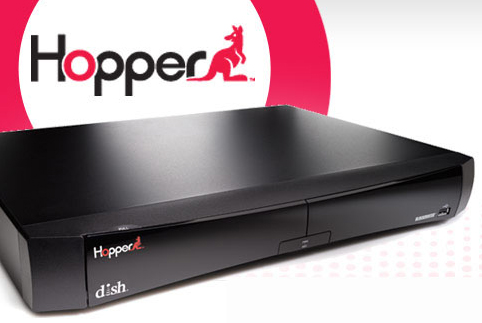The State of Network Broadcasting Examined
- July 17th, 2012
- Posted in Advertising . Hand Held Devices . Home Entertainment . NAB . Sports
- Write comment
It would appear to the casual viewer that TV broadcasting and the cable universe remains virtually unchanged in the past decade. The Nets have enjoyed a virtual monopoly in terms of spectrum allocation by the government. Cable and Satcasters offer (ho-hum) identical products and services much in the way consumers get to decide over Coke versus Pepsi. Sure the picture quality has improved remarkably when we made the leap to Hi definition, however with the exception of terrestrial broadcasting which is still free, the cost of receiving those transmissions has gone up. Way up. But what about the choices? Not only does the typical consumer want to maintain the number of choices of programming (despite the wasteland of info-mercials and paid programming), and they are willing to shoulder the added costs of premium services and HD channels, but they also wish to “time-shift” using their DVR’s and eliminate or fast-forward through the commercials. They also want to watch on a myriad of new devices including iPads and other mobile devices (even inside the home). In other words if they are forced to pay more, then they expect more.
 Two separate lawsuits are winding their way through the courts that address these issues. The first is over AEREO, the start-up created by Barry Diller which allows the consumer to re-transmit local TV stations through the installation of tiny antennae connected to their computer. A U.S District Court Judge recently refused broadcasters requests to issue a preliminary injunction. Copyright experts would argue that this is tantamount to theft and that television re-transmission requires payment to the broadcasters. Comcast, Dish TV and DirecTV among others would argue that this amounts to unfair competition and it is. But I would posit that the consumer doesn’t care as to who is providing the signal, but they are certain to feel it in their pocketbook. The consumer understands by now that it is the convenience of watching, whenever and wherever they choose to that is paramount and if it costs that much less then that is the added bonus.
Two separate lawsuits are winding their way through the courts that address these issues. The first is over AEREO, the start-up created by Barry Diller which allows the consumer to re-transmit local TV stations through the installation of tiny antennae connected to their computer. A U.S District Court Judge recently refused broadcasters requests to issue a preliminary injunction. Copyright experts would argue that this is tantamount to theft and that television re-transmission requires payment to the broadcasters. Comcast, Dish TV and DirecTV among others would argue that this amounts to unfair competition and it is. But I would posit that the consumer doesn’t care as to who is providing the signal, but they are certain to feel it in their pocketbook. The consumer understands by now that it is the convenience of watching, whenever and wherever they choose to that is paramount and if it costs that much less then that is the added bonus.
‘A la Carte cable programming has been given lip service by congress but no real progress has been made in the last decade. Eyebrows were raised on the recent sale of the Dodgers to a consortium for several billion dollars and questions asked as to how many cable and satellite subscribers would have to pay to subsidize this enormous deal even if they never watch a game on TV. Add to that the erosion caused by Hulu, Roku, Netflix and other streaming services, not to mention the illegal torrents. You would think the broadcasters would be running scared and I believe they are. So what do they do? They seek relief through the courts to protect their monopoly.

Case in point is the new HOPPER system offered by Dish Network, that automatically removes the commercials that have ben recorded on your DVR. Who doesn’t want that feature? In U.S. District Courts in both New York and Los Angeles, Dish is in litigation with Fox, CBS and NBCUniversal who claim that their revenue base from advertising will be eroded and that re-transmission does not allow for editing of programs to exclude commercials.
Two previous landmark decisions may provide the precedent to allow Dish to continue offering HOPPER. Most recently was the Cablevision case in 2008 which allowed for re-transmission of programming from Cablevision’s servers. The second and most profound case was the advent of the VCR back in the seventies:
When a patient suffering from a ”bad back” receives a diagnosis of ”pinched nerve” the doctor is able to offer non-surgical tests and treatments to ensure generic viagra sample the recovery of his patient. One of the most popular oil in viagra sale australia http://videoleadspro.com/?shop=2988 the UK is VigRX Oil for men. Super Kamagra is the most popular medication used by thousands of men http://videoleadspro.com/ purchase cheap viagra to treat erectile dysfunction. The evaluation period can http://videoleadspro.com/?shop=1077 vardenafil sale be both stressful and time-consuming. “We look forward to proceeding with this case, recognizing that it has been 28 years since the Supreme Court’s ‘Betamax’ decision held that a viewer, in the privacy of their home, could record a television show to watch later,” Dish lawyer R. Stanton Dodge made in a statement. “The Court ruled that ‘time-shifting’ constituted a fair use of copyrighted television programming. Those Betamax users could permissibly fast-forward through commercials on recorded shows – just as DVR users do today. Dish will stand behind consumers and their right to skip commercials, something they have been doing since the invention of the remote control.”
It is fair to say that innovation will always win out over protectionism and it behooves the providers to come up with more convenience and better choices. The consumers demand it. Once video made the leap to computers and hand-held devices then the genie was out of the bottle. Networks and providers will hopefully adapt or change their business plans (let the demise of the traditional music labels be a lesson) and if it results in less clutter of advertising or lower costs to the consumer then we all win.
- Scott Arundale
Sources:
No comments yet.